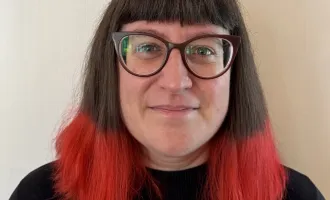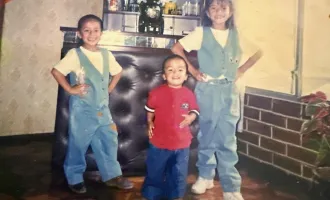
Toward Justice: An Urgent Appeal for A Ceasefire in Gaza
In the war-torn town of Gaza, Palestine, where the echoes of desperate pleas for a ceasefire reverberate through the rubble-filled, devastated streets, a harrowing reality unfolds.
Beyond being a temporary respite from the relentless violence, a ceasefire emerges as the key to unlocking the shackles of an enduring tragedy-one that has marred the region’s history for decades.
The violence inflicted on Palestine is a representation of the deeply ingrained structural violence and systemic injustice. The discriminatory policies and practices perpetuated by the Israeli government have contributed to the unequal distribution of power, opportunity, and resources, which is a stark reflection of a system that sustains itself through the marginalization of the Palestinian population.
This systemic injustice, as argued by political scientist Sara Roy at Harvard University, not only deepens the health disparities but also perpetuates a cycle of despair and resistance.
Amidst the ongoing hostility in Gaza, the urgency of a ceasefire cannot be overstated, as it represents a lifeline for the civilian population. The toll on human lives has been devastating, with civilians, including children, bearing the brunt of the violence.
The indiscriminate nature of the violence is reflected in reports from international organizations and humanitarian organizations, such as Amnesty International and Human Rights Watch, which document the severe impact on civilians, including the destruction of homes, schools, and hospitals, leading to an exacerbated humanitarian crisis.
At least 47 UN Relief and Works Agency centers alongside 58 healthcare facilities in Gaza succumbed to attacks, disabling at least 70 healthcare facilities, rendering all northern Gaza’s hospitals non-operational due to the siege imposed by Israel, according to Al Jazeera as of November 22, 2023.
Since October 7th, a staggering toll has been exacted on the Palestinian people in the relentless onslaught of Israeli attacks. According to Al Jazeera, as of November 22, 2023, the gravity of this crisis is illustrated by the loss of over 14,000 lives, among them more than 6,000 children, laying bare the immense human cost.
The scale of suffering amplifies with over 25,000 people left wounded and 1.5 million forcibly displaced. Tragically, countless individuals remain unaccounted for, their existence buried beneath the rubble of destruction. Throughout this devastation, the targeting of essential facilities compounds the humanitarian crisis.
These brazen assaults extend to over 100 attacks on healthcare, imperiling the lives of thousands of patients and healthcare workers, including 50,000 pregnant patients currently encircled in Gaza. The harrowing statistics narrate a story of unyielding devastation that demands urgent attention and international intervention.
The preservation of human lives, a fundamental principle underscored by international humanitarian law, demands an immediate imperative of a ceasefire that lies in its potential to halt this tragic loss of life and alleviate the suffering of innocent civilians.
The international community must recognize the inherent value of human lives and work towards a sustainable cessation of hostilities as an ethical imperative. Beyond the immediate relief, a ceasefire is a crucial and practical necessity to alleviate the suffering of innocent civilian lives, providing a glimmer of hope for a more stable and secure future and addressing the much larger systemic issues that perpetuate and exacerbate violence in the region.
Being an Arab Muslim deeply committed to the pursuit of global health, my unique perspective intertwines cultural awareness with a comprehensive understanding of the humanitarian implications, making me well-versed in advocating for a ceasefire to alleviate suffering and foster long-term solutions.
As the dust settles over the ruins and the world's attention momentarily shifts, this ceasefire is not just a break from the chaos; it is the bold stride toward confronting the entrenched structural violence that has cast its dark shadow over Gaza's history.
In a place where rubble tells tales of resilience and suffering, the call for a ceasefire transcends a cry for peace; it is a rallying call for justice and a profound reclamation of the silenced voices beneath the debris.



